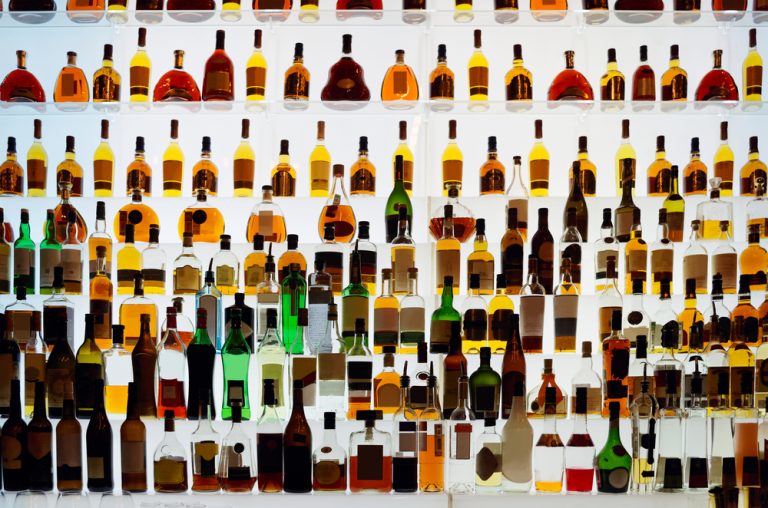20-02-2020
Such groups are not considered part of a formal treatment plan, but they are considered as useful in conjunction with professional treatment. Support groups or self-help groups can be part of in-patient programs or available for free use in the community. Well-known support groups include narcotics anonymous (NA), alcoholics anonymous (AA), and SMART Recovery (Self-Management and Recovery Training). Counseling may also involve family members to develop a deeper understanding of substance use disorder and improve overall family functioning. Over 20 million people aged 12 or older had a substance use disorder in 2018.

Addiction doesn’t happen from having a lack of willpower or as a result of making bad decisions. Before going through treatment for cessation, the drug may have been a top priority in your life. Much of your time may have been spent thinking about the drug, seeking it out, using, and recovering.
Benefits of Meditation for Drug & Alcohol Addiction Recovery
It can be particularly helpful for preventing relapses in people dealing with substance use disorder involving alcohol, nicotine, or opioids. These medications work in different ways, but they generally help reduce cravings for the substance and reduce symptoms of withdrawal. The chronic https://trading-market.org/easy-bruising-why-does-it-happen/ nature of addiction means that for some people relapse, or a return to drug use after an attempt to stop, can be part of the process, but newer treatments are designed to help with relapse prevention. Relapse rates for drug use are similar to rates for other chronic medical illnesses.
A therapist can help them explore some of the reasons behind their substance use and come up with new coping strategies for dealing with challenges. For example, some may agree that shopping, sex, and exercise addictions exist but question the idea that people can become addicted to Facebook. In response, you might decide to quit the substance or behavior, only to find that you keep falling short, despite your best efforts. As addiction develops, it’s common to lose interest in hobbies and other things you once enjoyed. As you continue using a substance or engaging in a behavior, your brain continues to produce larger amounts of dopamine. Eventually, it recognizes that there’s plenty of dopamine in your brain already and starts producing less in response to normal triggers.
Support Groups and Aftercare
Learn about the different types of therapy available and how to choose… Rational Emotive Behavior Therapy (REBT) is a treatment approach that involves identifying and altering negative, irrational thoughts and feelings. Deep Transcranial Magnetic Stimulation (DTMS) therapy is a non-invasive approach to brain stimulation. It occurs through electromagnetic currents sent through a helmet containing a patented H-coil.

This includes programs to address co-occurring mental health disorders (like anxiety, depression, or bipolar disorder) as well as alcohol addiction. A psychiatrist is a medical doctor who specializes in mental health, including substance use disorders. They’re trained to understand the complex relationship between mental health and substance misuse and how to deliver evidence-based treatment for addiction. Most medications for Is It Narcissism or Alcoholism? are also available in outpatient, inpatient, and residential settings. Outpatient treatment may include individual or group counseling in addition to medication. Shorter-term residential treatment often provides patients with detox assistance, therapy, and help when transitioning into community-based or outpatient treatment.
Reduced drug use is a meaningful treatment outcome for people with stimulant use disorders
Addiction usually involves an inability to control substance use or specific behaviors. This can result in job loss, health issues, and relationship concerns, among other things. Different types of medications may be useful at different stages of treatment to help a patient stop abusing drugs, stay in treatment, and avoid relapse. While relapse is a normal part of recovery, for some drugs, it can be very dangerous—even deadly.
- If a person uses as much of the drug as they did before quitting, they can easily overdose because their bodies are no longer adapted to their previous level of drug exposure.
- CBT focuses on paying attention to the thoughts and emotions that cause distress and learning how to reframe them in the moment.
- This form of treatment can be done at a doctor’s office or via telehealth appointment.
Alcohol and drug abuse often require therapy during addiction recovery. Addiction therapy addresses mental health issues, illnesses, thought patterns, and behavior. These therapies are commonly provided at a treatment center, either as inpatient or outpatient programs.
Funding for the study was provided by grants from Oregon Health & Science University, the Agency for Healthcare Research and Quality, and the National Institute on Drug Abuse. Nearly half of the facilities required some up-front payment by self-pay patients, with an average up-front cost of $28,731. Of course, mindfulness is most effective when used with other therapy modules. Naltrexone is available in the form of an oral tablet or injection. Vivitrol is an injected form of the drug that your doctor can give you once a month. This may be more reliable and convenient than oral pills, especially if you think you may forget or be unwilling to take a pill every day.
